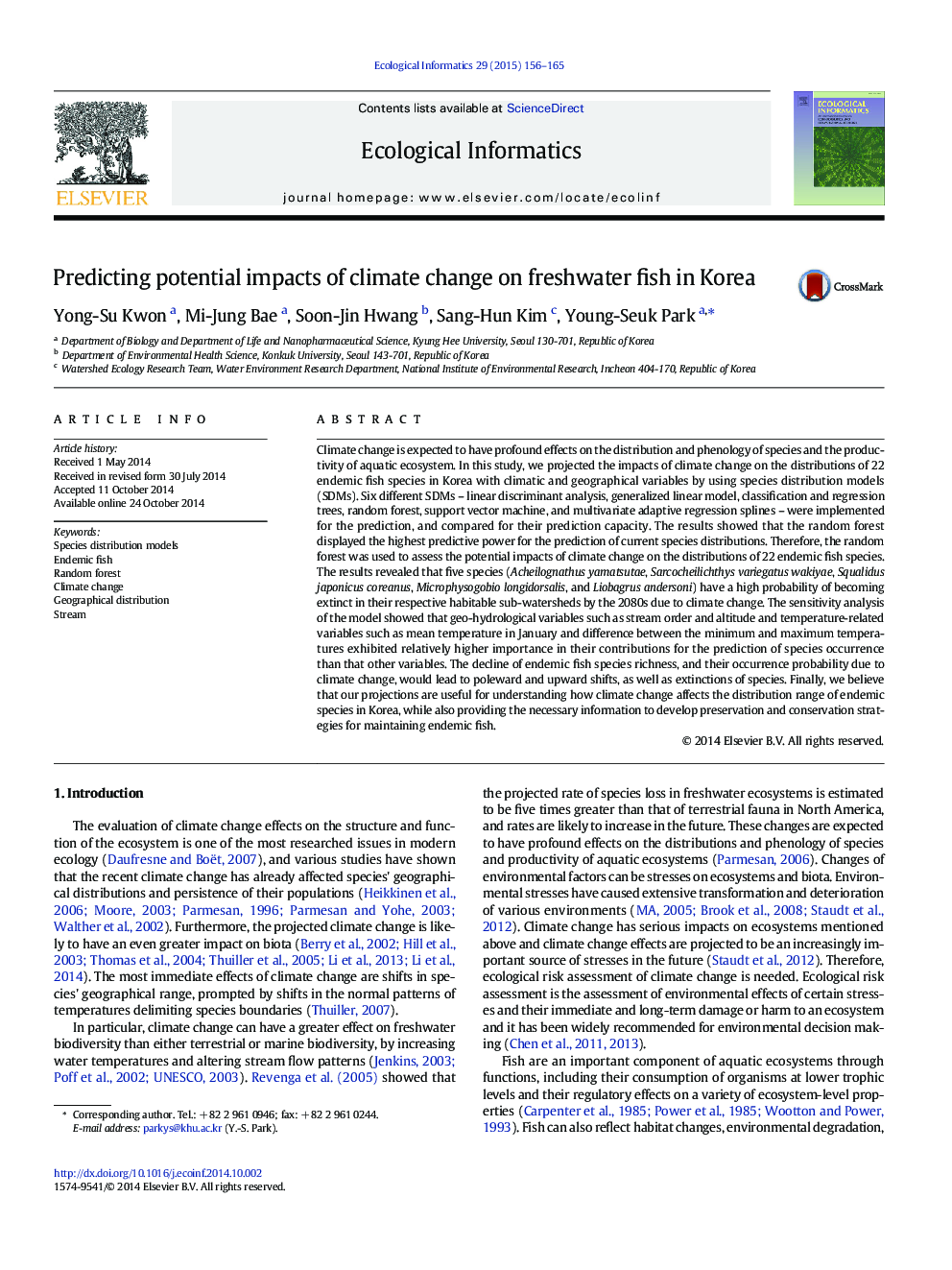| Article ID | Journal | Published Year | Pages | File Type |
|---|---|---|---|---|
| 4374802 | Ecological Informatics | 2015 | 10 Pages |
•We projected the impacts of climate change on the distributions of fish species.•The random forest model showed the best prediction power for the distributions of species.•The model predicted decrease of endemic species richness and occurrence probabilities in the 2080s.•The model predicted the extinctions of five species from their habitats in the 2080s.
Climate change is expected to have profound effects on the distribution and phenology of species and the productivity of aquatic ecosystem. In this study, we projected the impacts of climate change on the distributions of 22 endemic fish species in Korea with climatic and geographical variables by using species distribution models (SDMs). Six different SDMs – linear discriminant analysis, generalized linear model, classification and regression trees, random forest, support vector machine, and multivariate adaptive regression splines – were implemented for the prediction, and compared for their prediction capacity. The results showed that the random forest displayed the highest predictive power for the prediction of current species distributions. Therefore, the random forest was used to assess the potential impacts of climate change on the distributions of 22 endemic fish species. The results revealed that five species (Acheilognathus yamatsutae, Sarcocheilichthys variegatus wakiyae, Squalidus japonicus coreanus, Microphysogobio longidorsalis, and Liobagrus andersoni) have a high probability of becoming extinct in their respective habitable sub-watersheds by the 2080s due to climate change. The sensitivity analysis of the model showed that geo-hydrological variables such as stream order and altitude and temperature-related variables such as mean temperature in January and difference between the minimum and maximum temperatures exhibited relatively higher importance in their contributions for the prediction of species occurrence than that other variables. The decline of endemic fish species richness, and their occurrence probability due to climate change, would lead to poleward and upward shifts, as well as extinctions of species. Finally, we believe that our projections are useful for understanding how climate change affects the distribution range of endemic species in Korea, while also providing the necessary information to develop preservation and conservation strategies for maintaining endemic fish.
